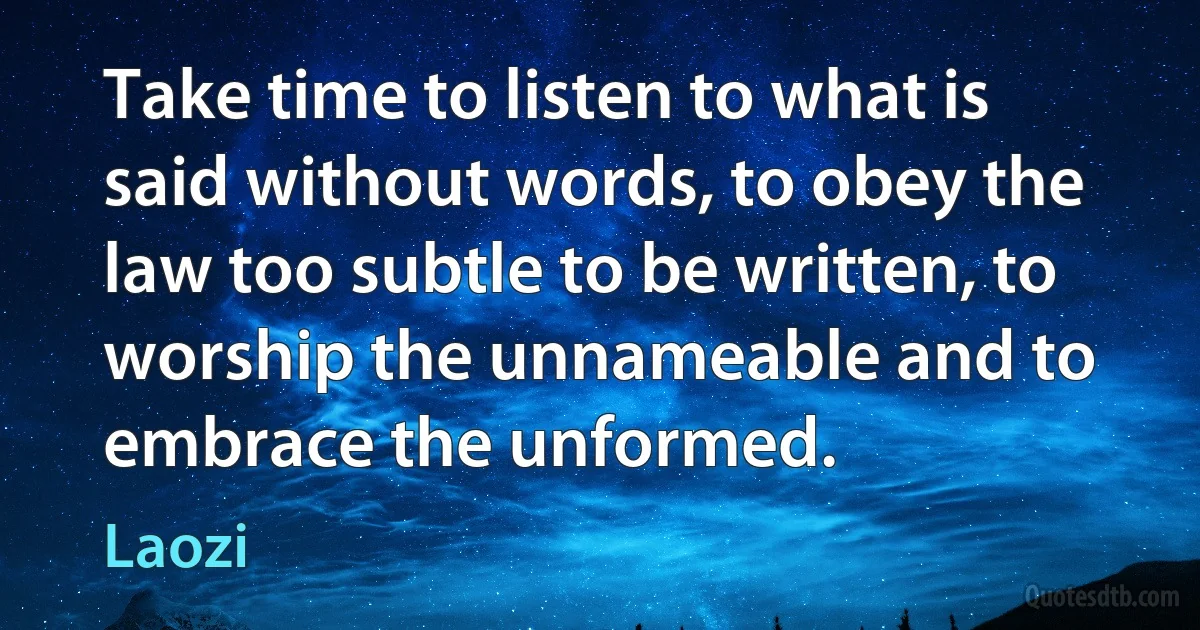Worship Quotes - page 41
And upon a wing of abominations he shall cause desolation, even until the consummation, and that which is determined be poured upon the desolate. The Prophets, in representing kingdoms by Beasts and Birds, put their wings stretched out over any country for their armies sent out to invade and rule over that country. Hence a wing of abominations is an army of false Gods: for an abomination is often put in scripture for a false God; as where Chemosh is called the abomination of Moab, and Molech the abomination of Ammon. The meaning therefore is, that the people of a Prince to come shall destroy the sanctuary, and abolish the daily worship of the true God, and overspread the land with an army of false gods; and by setting up their dominion and worship, cause desolation to the Jews, until the times of the Gentiles be fulfilled. For Christ tells us, that the abomination of desolation spoken of by Daniel was to be set up in the times of the Roman Empire, Matth.

Isaac Newton
Injustice we worship; all that lifts us out of the miseries of life is the sublime fruit of injustice. Every immortal deed was an act of fearful injustice; the world of grandeur, of triumph, of courage, of lofty aspiration, was built up on injustice. Man would not be man but for injustice.

George Moore (novelist)
I believe in an America where the rights that I have described are enjoyed by all, regardless of their race or their creed or their national origin - where every citizen is free to think and speak as he pleases and write and worship as he pleases - and where every citizen is free to vote as he pleases, without instructions from anyone, his employer, the union leader or his clergyman.

John F. Kennedy
Kinship among nations is not determined in such measurements as proximity of size and age. Rather we should turn to those inner things - call them what you will - I mean those intangibles that are the real treasures free men possess. To preserve his freedom of worship, his equality before law, his liberty to speak and act as he sees fit, subject only to provisions that he trespass not upon similar rights of others - a Londoner will fight. So will a citizen of Abilene. When we consider these things, then the valley of the Thames draws closer to the farms of Kansas and the plains of Texas.

Dwight D. Eisenhower
Being bodiless, God is nowhere, but as God He is everywhere. If there were a mountain, a place or any part of Creation where God was not, then He would be found to be in some way circumscribed. So He is everywhere and in everything. In what way is this so? Is He contained not by each part but by the whole? No, because then that would be a body. He embraces and encompasses everything, and is Himself everywhere and also above everything, worshipped by true worshippers in His Spirit and Truth.

Gregory Palamas
How can it be other than right to worship the Body of the Lord, all-holy and all-reverend as it is, announced as it was by the archangel Gabriel, formed by the Holy Spirit, and made the Vesture of the Word? It was at any rate a bodily hand that the Word stretched out to raise her that was sick of a fever (Mk. 1:31): a human voice that He uttered to raise Lazarus - the dead (Jn. 11:43); and, once again, stretching out His hands upon the Cross, He overthrew the prince of the power of the air, that now works (Eph. 2:2) in the sons of disobedience, and made the way clear for us into the heavens.

John of Kronstadt
I believe that independent India can only discharge her duty towards a groaning world by adopting a simple but ennobled life by developing her thousands of cottages and living at peace with the world. High thinking is inconsistent with complicated material life based on high speed imposed on us by Mammon worship. All the graces of life are possible only when we learn the art of living nobly.

Mahatma Gandhi
Since Rajdeep Sardesai was among the leading reporters covering the disturbances, I phoned him to say, "I will have to put a temporary ban on your channel if you continue with the provocative coverage. There is a well-established regulation that media should not name communities during communal riots nor identify a damaged place[s] as a mandir or masjid. Why are you violating that code and [established] protocol about not naming communities or identifying places [...] of worship? You are going against established norms."

Narendra Modi
The Eastern Uniate Churches retain ancient habits of worship which are dear to them, and liturgies which in many cases are unintelligible to the faithful. Is not the time to seek similar privileges for Roman Catholics? Will you promote an appeal to the Holy See for the establishment of a Uniate Latin Church which shall observe all the rites as they existed in the reign of Pius IX?

Evelyn Waugh
[D]escribed the worship of power as "the new religion in Europe." Anti-Americanism, predicated in part on fascism's mirror image, the revilement of power–especially when that power is somebody else's–answers many of the fundamental needs once filled by the Church. There is a transcendant and common goal.

Claire Berlinski
If Religion consist in voluntary acts of individuals, singly, or voluntarily associated, and it be proper that public functionaries, as well as their Constituents shd discharge their religious duties, let them like their Constituents, do so at their own expence. How small a contribution from each member of Congs wd suffice for the purpose? How just wd it be in its principle? How noble in its exemplary sacrifice to the genius of the Constitution; and the divine right of conscience? Why should the expence of a religious worship be allowed for the Legislature, be paid by the public, more than that for the Ex. or Judiciary branch of the Govt [?] Were the establishment to be tried by its fruits, are not the daily devotions conducted by these legal Ecclesiastics, already degenerating into a scanty attendance, and a tiresome formality?

James Madison
It only remains that I offer very briefly my own estimate of the character of the Philosopher. Morally it was a blank, and can be described only by a series of negations. He did not love; he did not hate; he did not hope; he did not fear; he did not worship as others do. He separated himself from his fellow men, and apparently from God. There was nothing earnest, enthusiastic, heroic, or chivalrous in his nature, and as little was there anything mean, grovelling, or ignoble. He was almost passionless.

Henry Cavendish
You hear girls in the toilets of clubs saying, 'Yeah, he fucked off and left me. He just couldn't deal with love. He was too fucked up to know how to love me.' Now how did that happen? What was it about this unlovable century that convinced us we were, despite everything, eminently lovable as a people, as a species? What made us think that anyone who fails to love us is damaged, lacking, malfunctioning in some way? And particularly if they replace us with a god, or a weeping madonna, or the face of Christ in a ciabatta roll-then we call them crazy. Deluded. Regressive. We are so convinced of the goodness of ourselves, and the goodness of our love, we cannot bear to believe that there might be something more worthy of love than us, more worthy of worship. Greeting cards routinely tell us everybody deserves love. No. Everybody deserves clean water. Not everybody deserves love all the time.

Zadie Smith



